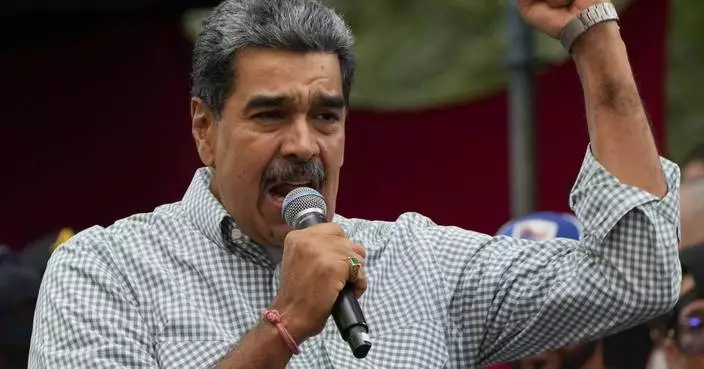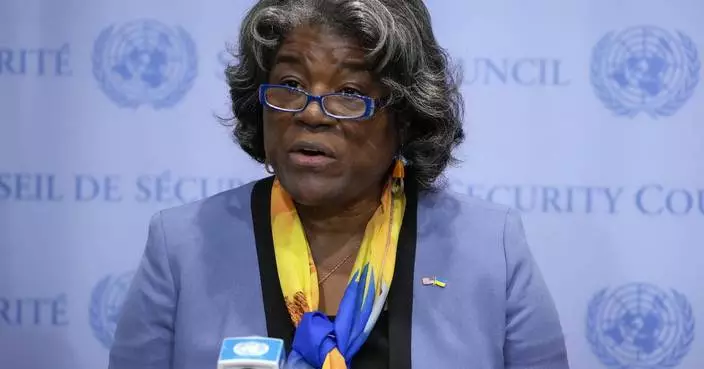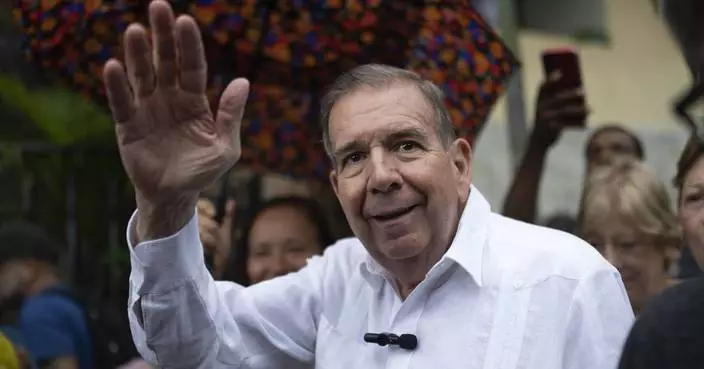A hard-won, warts-and-all budget pact between House Speaker Nancy Pelosi and President Donald Trump is facing a key vote in the GOP-held Senate, with many conservatives torn between supporting the president and risking their political brand with an unpopular vote to add $2 trillion or more to the government's credit card.
The Trump-supported legislation backed by the Democratic speaker would also stave off a government shutdown and protect budget gains for both the Pentagon and popular domestic programs. It's attached to a must-do measure to lift the so-called debt limit to permit the government to borrow freely to pay its bills.
For many Republicans it's a tough vote, expected Wednesday afternoon. The tea party-driven House GOP conference broke against it by a 2-1 margin, but most pragmatists see the measure as preferable to an alternative fall landscape of high-wire deadlines and potential chaos. The government otherwise would face a potential debt default, an Oct. 1 shutdown deadline, and the return in January of across-the-board spending cuts known as sequestration.
Senate Majority Leader Mitch McConnell, R-Ky., is confident it will pass despite the misgivings of many Republicans.
But for new arrivals to the Senate, particularly those who ran against a broken Washington culture, the sweeping measure represents a lot of what they ran against: unrestrained borrowing and trillion-dollar deficits, fueled by a bipartisan thirst for new spending.
"This budget process, if we can even call it a process, put taxpayers at the mercy of a House Speaker who has no interest in prudent budgeting," said freshman Sen. Josh Hawley, R-Mo. "Our system is not supposed to work this way. When the entire federal budget depends on four or five people striking a deal among themselves, something is not right."
The budget and debt bill, however, is a top priority for McConnell, who set up the initial talks — taken over by Pelosi and Treasury Secretary Steven Mnuchin earlier this month — and pushed to isolate conservative forces in the White House who were disruptive. Top Senate Democrat Chuck Schumer of New York and House GOP leader Kevin McCarthy of California are also supporting the deal.
For House Republicans, as the minority party, it was easy to take a pass on voting for the legislation. Pelosi also made a point of showing she had enough Democratic votes to push it through without their help. But it's a different dynamic in the Senate, where Republicans hold the majority and are expected to deliver a strong vote for a Trump-backed agreement.
"Given the realities of divided government, it is a strong deal that achieves my Republican colleagues' and my No. 1 priority," McConnell said, citing gains for the military. "The Trump administration has negotiated their way to a major win on defense. The House has passed the compromise legislation. The president is ready and waiting to sign it."
Minority Whip Dick Durbin, D-Ill., said he expected a strong showing by the Senate's Democrats in favor of the bill. And GOP leadership stalwarts like Sens. Roy Blunt, R-Mo., Roger Wicker, R-Miss., and John Cornyn, R-Texas, swiftly swung behind the measure, calling it about the best result possible in a legislating matrix that demands Pelosi's blessing for bills to become law.
"So what price did we have to pay to get this? We had to give Nancy Pelosi a 4% increase this year in domestic spending and zero increase next year for an average annual increase that's less than the growth in (gross domestic product)," Wicker said, adding that many House Republicans took the "vote no, hope yes" approach to the legislation.
"I want to know what better deal anybody could have crafted that got Nancy Pelosi's sign-off in the House and Mitch McConnell's sign-off in the Senate, along with McCarthy and Schumer," Wicker said.
The agreement between the administration and Pelosi lifts the limit on the government's $22 trillion debt for two years and averts the risk of the Pentagon and domestic agencies from being hit with $125 billion in automatic spending cuts that are the last gasp of the 2011 budget deal.
DHAKA, Bangladesh (AP) — A high-level U.S. delegation met Sunday with the head of Bangladesh's interim government, Nobel laureate Muhammad Yunus, to affirm “dedication to fostering inclusive economic growth," according to the American embassy in Dhaka.
Yunus took over after former Prime Minister Sheikh Hasina fled the country last month amid a mass uprising. She was accused of corruption, violation of human rights and excessive use of force against the protesters.
During her 15-year rule, Hasina enjoyed close relations with India, China and Russia who have heavily invested in the country’s infrastructure development, trade and investment. The U.S. has also become the single largest foreign investor in Bangladesh under Hasina.
Yunus on Sunday said he sought U.S. support “to rebuild the country, carry out vital reforms, and bring back stolen assets,” his press office said in a statement after he met the delegation at the State Guest House Jamuna in Dhaka.
He told the U.S. representatives his interim administration has moved fast to “reset, reform, and restart” the economy, initiate reforms in financial sectors, and fix institutions such as the judiciary and police, the statement said.
The U.S. delegation, led by Brent Neiman, assistant secretary for International Finance at the U.S. Department of the Treasury, had representatives from the U.S. Agency for International Development, and Office of the U.S. Trade Representative. Donald Lu, assistant secretary of State for South and Central Asian Affairs, joined the delegation after visiting India.
They met with several officials in Dhaka, including Touhid Hossain, the country’s adviser to the Ministry of Foreign Affairs. The USAID also signed an agreement to provide $202.25 million in aid to Bangladesh.
The U.S. embassy on X underscored how American companies are entrenched in the South Asian country.
“With the right economic reforms in place, the American private sector can help unlock Bangladesh’s growth potential through trade and investment,” the embassy wrote on its official account.
The delegation also met representatives of the American companies under the American Chamber of Commerce in Bangladesh (AmCham) operating in Bangladesh upon arriving Saturday.
Concerns over safety and lack of order in Bangladesh were relayed by the companies' agents.
AmCham President Syed Ershad Ahmed said at the meeting that while there were improvements after the interim government was installed, “there are some bottlenecks too.” Profit repatriation amid the ongoing crisis of U.S. dollars and challenges in the supply chain resulting from congestion at ports were among the issues he raised.
The meeting came as unrest took hold of the country's major garment industry with workers walking out, leaving factories shuttered, as they demanded better benefits including higher wages. The factory owners, the government and workers’ leaders are holding meetings to ease the tension.
Bangladesh is one of the most vulnerable countries to climate-induced disasters. The U.S. embassy on its official Facebook page said the United States wanted to help it "mitigate climate risks.”
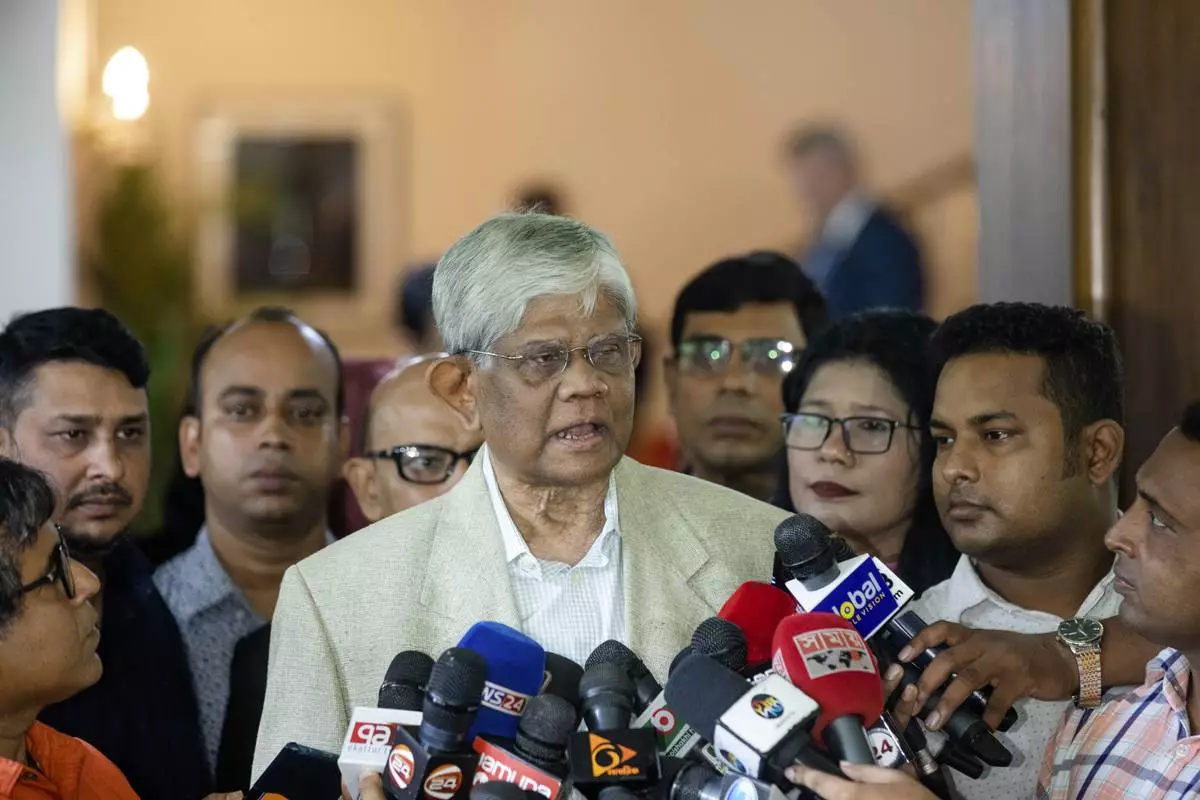
Dr. Salehuddin Ahmed, Adviser to Bangladesh's interim government's Ministry of Finance, center, speaks to media personnel after the signing of the 6th amendment of 'The Development Objective Grant Agreement (DOAG)' between US and Bangladesh, in Dhaka, Bangladesh, Sunday, Sept. 15, 2024. (AP Photo/Rajib Dhar)
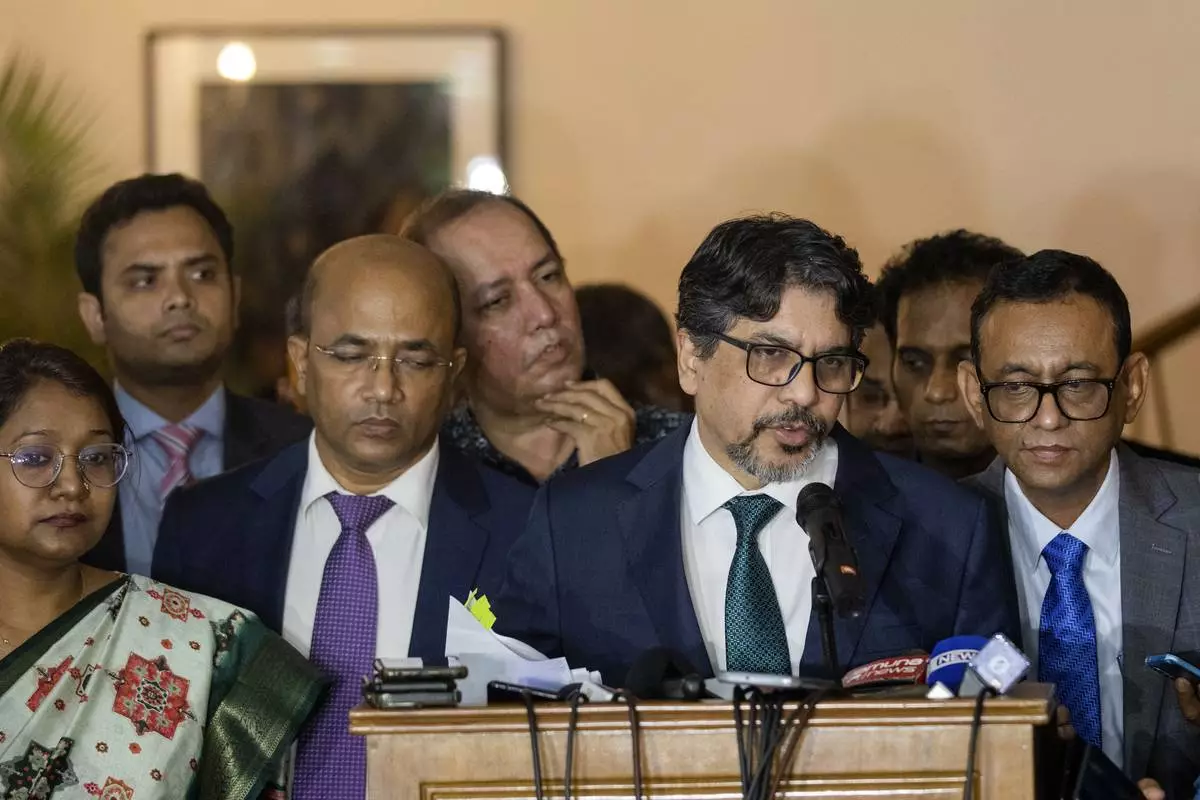
Md. Jashim Uddin, Foreign Secretary in Bangladesh's interim government, speaks to media personnel after the signing of the 6th amendment of 'The Development Objective Grant Agreement (DOAG)' between the United States and Bangladesh, in Dhaka, Bangladesh, Sunday, Sept. 15, 2024. (AP Photo/Rajib Dhar)
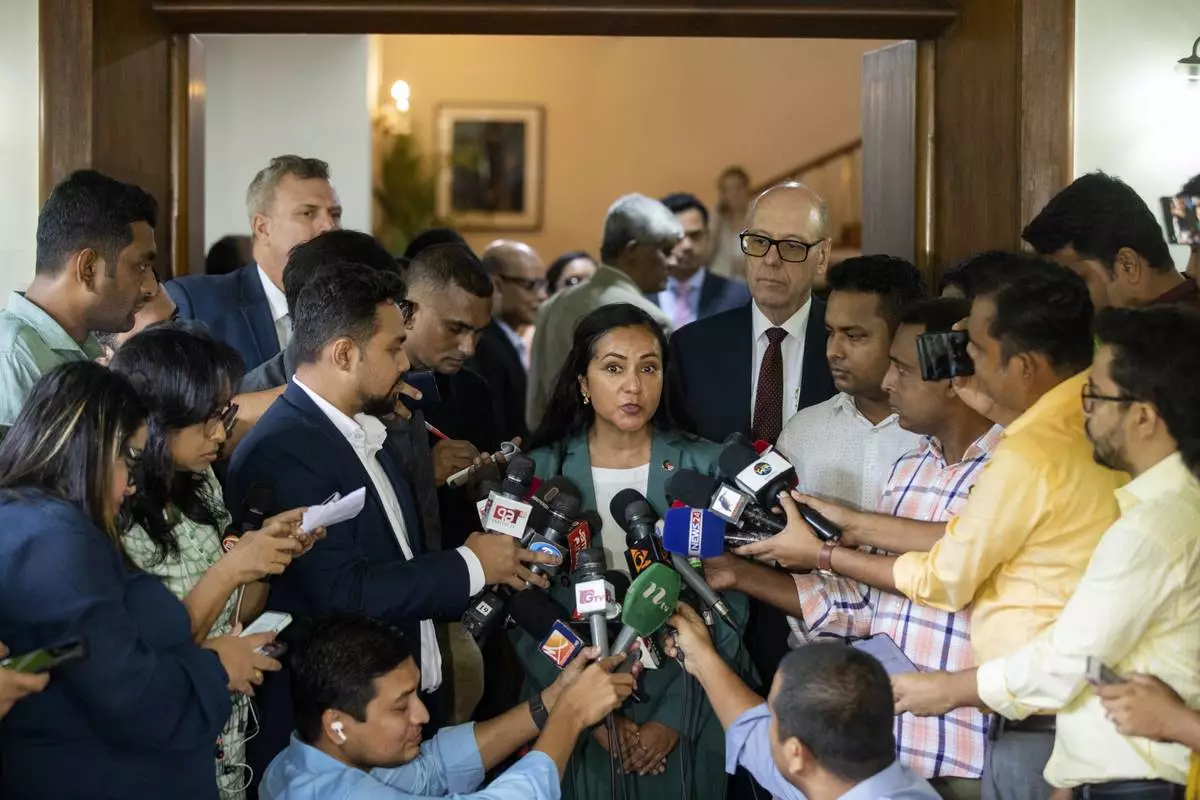
Anjali Kaur, Deputy Assistant Administrator of the Bureau for Asia, United States Agency for International Development (USAID), center, speaks to media personnel after the signing of the 6th amendment of 'The Development Objective Grant Agreement (DOAG)' between US and Bangladesh, in Dhaka, Bangladesh, Sunday, Sept. 15, 2024. (AP Photo/Rajib Dhar)
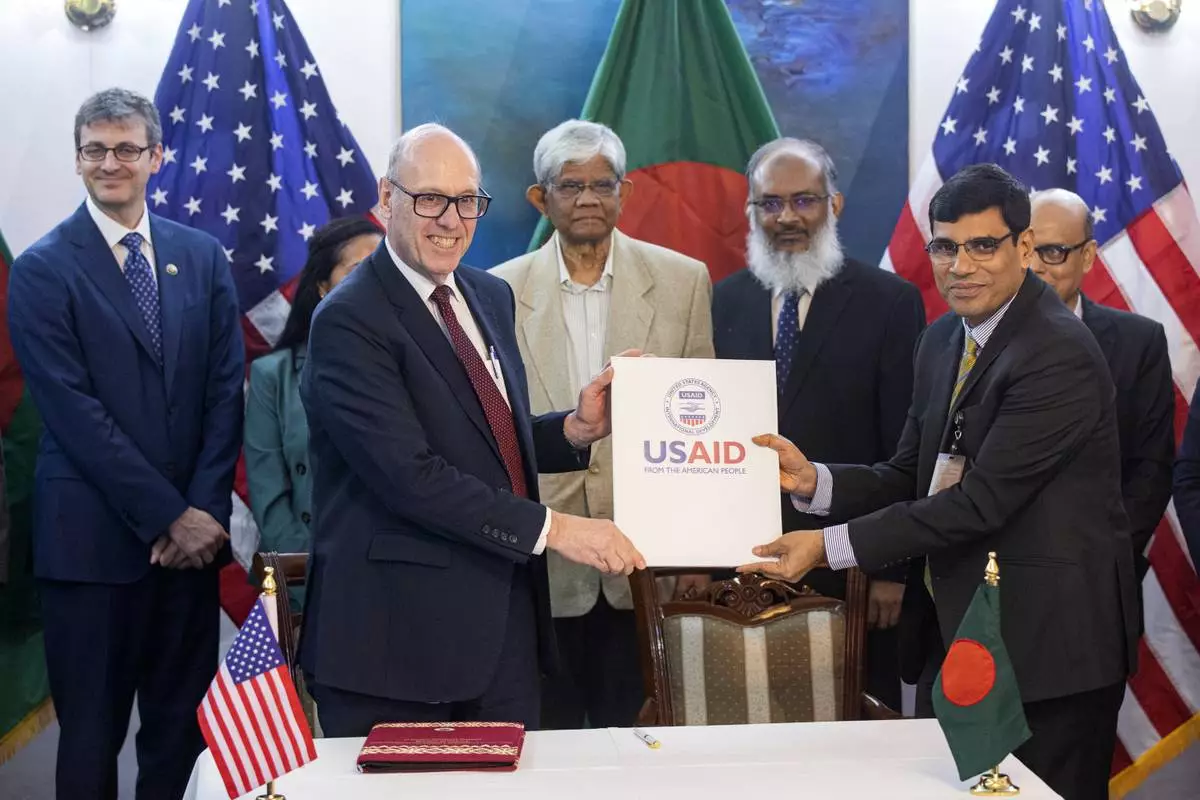
Reed J. Aeschliman, USAID Mission Director for Bangladesh, front left, and A. K. M. Shahabuddin, Additional Secretary, Ministry of Finance, Bangladesh, pose for a photograph with other officials after signing the 6th amendment of 'The Development Objective Grant Agreement (DOAG)' in Dhaka, Bangladesh, Sunday, Sept. 15, 2024. (AP Photo/Rajib Dhar)
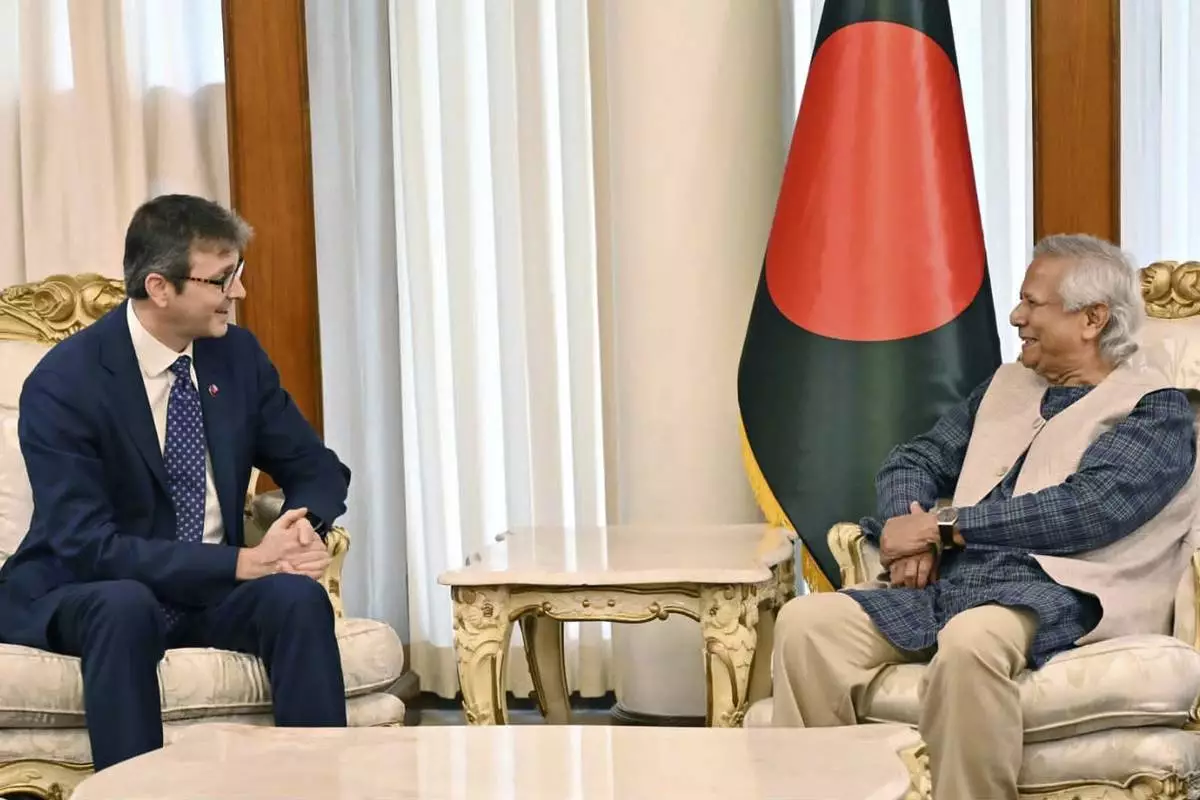
This photo handed out provided by Bangladesh Press Information Department (PID) shows Brent Neiman, US Assistant Secretary of the Treasury for International Finance and Development, left, speaking with Muhammad Yunus, Bangladesh's interim government's leader, in Dhaka, Bangladesh, Sunday, Sep. 15, 2024. (PID via AP)








